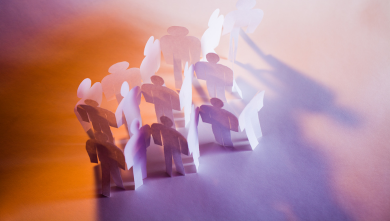Q: Can you introduce yourself by telling me about the work you do at CAHMA?
My name is David Baxter. I’m the Programs Coordinator, I also coordinate the Naloxone Program. So I’m one of the leadership team here at CAHMA. I’ve been an employee of CAHMA for about eight years now, and before that, I was a voluntary worker and occasional casual worker for another three years. Before that, I’ve lived in Canberra for most of my life. I’ve lived elsewhere, you know, from time to time, but mostly in Canberra.
Q: Can you describe the overdose-related work that is done at CAHMA?
We provide training on how to use Naloxone and run about one workshop per week. We also provide Naloxone to walk-in clients. So if a client walks into CAHMA, we have a front-facing drop-in centre. Clients are welcome to come in. They don’t have to be accessing services, or they don’t have to make an appointment. They can just come into the lobby, make a cup of coffee, and sit and watch television for a couple of hours if they so choose.
In my role at CAHMA, I also do a lot of supervision and provide peer education training, particularly for people who are in day programs of other drug and alcohol services. We provide regular peer education courses and regular Naloxone training for their clients. Once every month, I go to the Canberra Recovery Services, one of the residential rehabs here, and talk to some of their clients and residents about Naloxone. People coming out of residential rehab are some of the people at the highest risk of overdose.
I also train Corrections Officers, Homeless, and Mental Health Services on administering Naloxone. One of the things is trying to recognise that first of all, alcohol and drug issues aren’t something that you can silo, they’re tied in with a lot of other things, particularly poverty, and homelessness or home insecurity, and that can tie in with mental health issues.
Q: We often talk about the people we have lost to overdose, and it is incredibly important to honour those people It’s also important to honour our community who are responding to overdose and empowering others to prevent more people from being impacted by overdose. Can you tell me about a time when you felt the positive impact of what you do, either because you were involved, or you were told about something?
I’ve had many situations where people, sometimes months or years afterwards, will attend a training course, saying, “Oh yeah, one time years ago, my partner overdosed, and we just happened to have Naloxone there.” And I’m so grateful for this. It’s happened many times where people have said, “I’m so thankful for having this here”. And I’m thinking … “Oh, I don’t even remember you coming along to the training”, but you know, over the years, we’ve had probably 2,000 different people come along to training and handed out close to 5,000 kits.
I also remember living in government flats, and one of my neighbours was a heroin and ice dealer. And they used to have people overdosing in their flat frequently, and they’d come and knock on my door asking for help. I’m getting really lovely letters from people saying “thank you so much for saving my mom’s life”. It’s always a really positive thing to hear people say.
Q: What does International Overdose Awareness Day mean to you?
To me, every day is International Overdose Awareness Day. And I’m of the belief that it should be really for anyone who uses drugs, particularly those who use opioids. You need to be aware of these, and you need to be aware of the risks that using opioids is an inherently risky activity. It’s important that you take steps to mitigate those risks or if things do go wrong, be able to handle it or rely upon someone else who can handle it. I think it’s important that we have an International Overdose Awareness Day. But for me personally, that’s something that I need to be aware of every day of the year.
Q: If you could say one thing to people who don’t understand the issue of overdose, what would you say?
I would say that it’s important that people realise that an overdose can kill you. It can easily kill you. And it can happen in such an undramatic, peaceful way that you could drift away from an overdose in a room full of people, and no one will even notice. They will just think you’re sleeping. The other thing around Naloxone, one of the issues that came up originally when we first started offering to take home Naloxone, this was particularly from people who are very strong prohibitionists saying that if you give people Take Home Naloxone then that’s essentially encouraging them to use more and to take greater risks because they’ve got a safety net behind them. First of all, that does not stick because what prevents people from using larger quantities of drugs is not the risk of overdose. It’s simply the expense. And you know, it’s also the desire for the effect that a lot of people who use opioids or use any drugs, in fact, most people do it because they get some degree of either enjoyment or satisfaction out of it.

